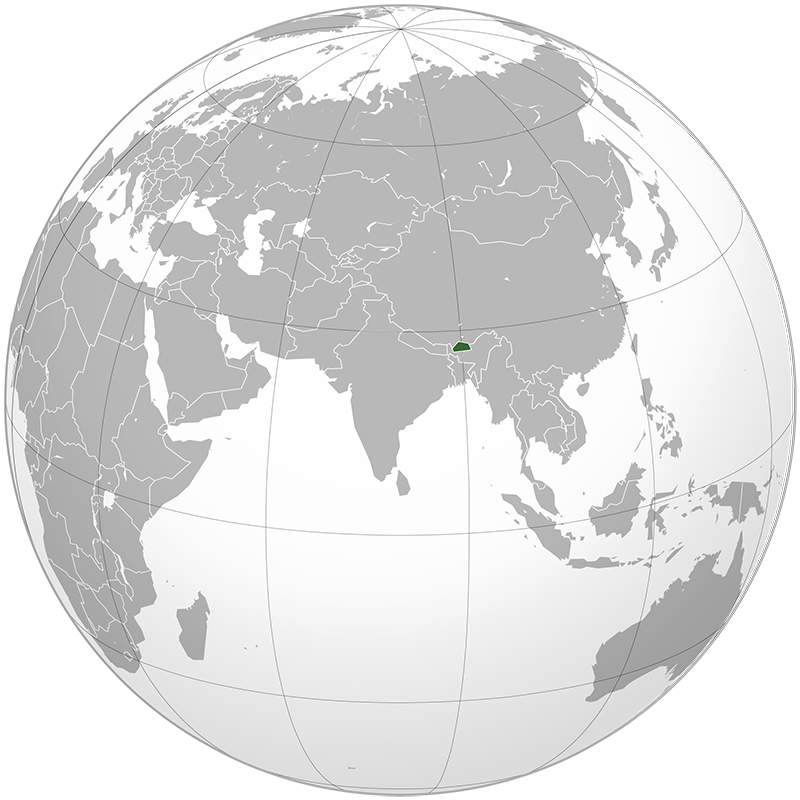بوتان
آسيا الجنوبية

(Download current filtered dataset)
| عنوان▲▼ | سكان▲▼ | الأناجيل▲▼ | موارد▲▼ |
|---|---|---|---|
| DzongkhaBhutanese | ٣٠٦٬٦٥٠ | ١ | ٥ |
| Nepaliनेपाली | ٢٦٥٬٠٠٠ | ٨٣ | |
| TshanglaSharchop | ١٦٧٬٣٨٠ | ١٠ | |
| Khengkha ྨཕགལཔམཕ | ٦٥٬١٦٠ | ٢ | |
| Nepali Nepalese | ٣٣٬٠٠٠ | ٦ | ١١٣ |
| Assameseঅসমীয়া | ٢٦٬٢٠٠ | ٥ | ٨ |
| BumthangkhaBhumtam | ٢٢٬٥٩٠ | ||
| ChocangacakhaTsamang | ٢٠٬٣٣٠ | ٢ | |
| Bengaliবাংলা | ٢٠٬٠٠٠ | ١٧ | ١٦٤ |
| BantawaBantaba | ١٩٬٢٠٠ | ١ | ٥ |
| DzalakhaDzala 'Mat | ١٦٬٦٨٠ | ٢ | |
| Kurtokha Zhâke | ١٥٬٠٠٠ | ٢ | |
| NyenkhaHenkha | ١٢٬٦٤٠ | ||
| Lakhaལ་ཁ་ | ١٠٬٦٢٠ | ٢ | |
| Kurukh Oraon | ١٠٬٠٠٠ | ٢ | ٣٤ |
| TsekuTsuku | ٦٬٥٩٠ | ||
| Tibetanབོད་སྐད་ | ٥٬٤٥٠ | ٦ | ٣٣ |
| Santaliᱥᱟᱱᱛᱟᱲᱤ | ٥٬٣٠٠ | ٣ | ٤٦ |
| BrokpakeBrokpake | ٤٬٢٠٠ | ||
| Layakhaལ་ཡ་ཁ་ | ٣٬٤٨٠ | ||
| LhokpuLhobikha | ٣٬٤٦٠ | ٢ | |
| NupbikhaTrongsakha | ٣٬٠١٠ | ٢ | |
| Lepchaᰛᰩᰵᰛᰧᰵᰶ | ٢٬٩٠٠ | ١ | ٥ |
| AdiAbo tani | ٢٬٧٦٠ | ١ | ٣٠ |
| GongdukGongdukpa Angདགོང་འདུས་ | ٢٬٤٦٠ | ||
| DakpakhaTawang Monpa | ٢٬٠٠٠ | ٢ | |
| Chalikhaཚ་ལི་ཁ | ١٬٧٩٠ | ||
| KhambaKham-Hor | ١٬٦٨٠ | ||
| Lunanakhaལུང་ནག་ན་ཁ་ | ١٬٢٢٠ | ||
| Olekha Monkha | ٥٢٠ | ||
| BrokkatBrokskad | ٣٠٠ | ||
| SajalongDhammai | ٢٨٠ | ١ | ٢ |
| SherdukpenMey | ٢٤٠ | ٢ | |
| English | ١٠٠ | ٢٤٣ | ٣٥٩ |
١
-
٣٤
/
٣٤
| عنوان | سكان | الأناجيل | موارد |
|---|---|---|---|
| Dzongkha | 306650 | 1 | 5 |
| Nepali | 265000 | 0 | 83 |
| Tshangla | 167380 | 0 | 10 |
| Khengkha | 65160 | 0 | 2 |
| Nepali | 33000 | 6 | 113 |
| Assamese | 26200 | 5 | 8 |
| Bumthangkha | 22590 | 0 | 0 |
| Chocangacakha | 20330 | 0 | 2 |
| Bengali | 20000 | 17 | 164 |
| Bantawa | 19200 | 1 | 5 |
| Dzalakha | 16680 | 0 | 2 |
| Kurtokha | 15000 | 0 | 2 |
| Nyenkha | 12640 | 0 | 0 |
| Lakha | 10620 | 0 | 2 |
| Kurukh | 10000 | 2 | 34 |
| Tseku | 6590 | 0 | 0 |
| Tibetan | 5450 | 6 | 33 |
| Santali | 5300 | 3 | 46 |
| Brokpake | 4200 | 0 | 0 |
| Layakha | 3480 | 0 | 0 |
| Lhokpu | 3460 | 0 | 2 |
| Nupbikha | 3010 | 0 | 2 |
| Lepcha | 2900 | 1 | 5 |
| Adi | 2760 | 1 | 30 |
| Gongduk | 2460 | 0 | 0 |
| Dakpakha | 2000 | 0 | 2 |
| Chalikha | 1790 | 0 | 0 |
| Khamba | 1680 | 0 | 0 |
| Lunanakha | 1220 | 0 | 0 |
| Olekha | 520 | 0 | 0 |
| Brokkat | 300 | 0 | 0 |
| Sajalong | 280 | 1 | 2 |
| Sherdukpen | 240 | 0 | 2 |
| English | 100 | 243 | 359 |




